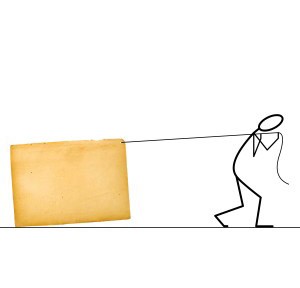 Effective leaders know stress can be a good thing. It keeps you focused, makes you competitive, and prompts action. However, it can also turn toxic. Long hours, layoffs, and fear of what is around the corner can take its toll.
Effective leaders know stress can be a good thing. It keeps you focused, makes you competitive, and prompts action. However, it can also turn toxic. Long hours, layoffs, and fear of what is around the corner can take its toll.
“A CEO needs to know what motivates their team so team members are not stressed and consequently working unproductively,” says Carole Spiers, contributor to Management-Issues.com.
She offers tips that will help leaders better manage their own stress levels.
Welcome feedback and criticism. Ask people to be honest with you even if you don’t like what they say.
“It’s easy to go into defensive mode but take heed when someone who you respect recognizes a change in your behavior, and conveys that to you, or to others,” Spiers says. The more ideas and opportunities you consider, the more empowered you’ll feel.
You are more productive when you tackle one job at a time rather than try to multi-task. If you have an unproductive task on your to-do list, eliminate that task. You’ll trim away stress at the same time.
When your time isn't managed, you are less likely to be as creative and inspirational. Spier suggests leaders work in two hour blocks at a time with short but definitive intervals in between and see how much more productive you become.
Take some time for yourself every day. As a leader, you probably tend to work long days so don’t overdo it. Even if you take a quick 15 minute break, it can give you a different perspective on a stressful situation. It is even better to commit to vacation time. Whatever you do, just give yourself time off to relax.
Leaders are real people with lives outside of their jobs. Stress often makes people see their limitations, not their assets. To control stress, use your supports and minimize demands and constraints.
What do you do to relieve stress?
Image courtesy of Stock.xchng
 There are plenty of reasons why stress has a bad reputation. Studies have linked it to weight gain, heart attacks, and chronic diseases such as cancer and diabetes.
There are plenty of reasons why stress has a bad reputation. Studies have linked it to weight gain, heart attacks, and chronic diseases such as cancer and diabetes.
However, a study led by Kirstin Aschbacher, assistant professor of psychiatry at the University of California, has determined some stress might actually protect us from some of the effects of aging.
This surprising conclusion is echoed by Dr. Jacob Teitelbaum, author of Real Cause, Real Cure, who contends that small doses of stress can improve both our cognitive function, and our overall health.
Lisa Evans, a contributor to Entrepreneur, outlined these experts’ tips on using stress to our “health advantage."
Part of the fun of an extreme sport like skydiving is the fight-or-flight response “that releases the hormones called cortisol and adrenalin for a surge of energy.” When you feel stress in less extraordinary circumstances, Teitelbaum advises, ask yourself whether the stress you’re experiencing “feels good or bad.”
“Some people do best under a deadline,” he says. “For them, it may be the only time they can function. For others, it’s the only time they can’t function.”
For most people, the imminent prospect of speaking before an audience will cause an adrenalin rush—which is a good thing. The release of this hormone “increases alertness and awareness and can improve memory and cognitive functioning.” It may also explain why some people claim to think better on their feet.
Prolonged stress suppresses our immune function, leaving us vulnerable to serious illness. On the other hand, stress for a brief time-frame (“an hour or two”) can be beneficial. Aschbacher’s study determined that “small amounts of stress reduces damage to DNA and RNA” and can, with the introduction of cortisol, “improve immune function when released in small quantities.”
The health benefits of stress are comparable to exercise, says Aschbacher. Exercise places “a certain amount of physiological stress” on our bodies. Then we take a break so our tissues can recuperate, “and our bodies actually become stronger through that process.” As with exercise, it’s important to build in some recuperation time afterwards.
Limited amounts of stress can have surprisingly valuable health benefits. The key, says Teitelbaum, is to look at stress in terms of “sprints, not marathons.” If you feel stress during your workday, give yourself time to “de-stress,” so your body can recover its vital stress-response system.
How do you handle stress in your daily life?
